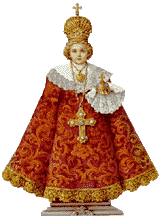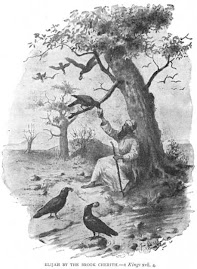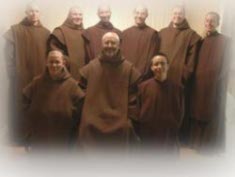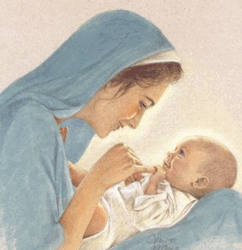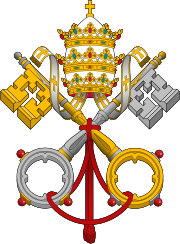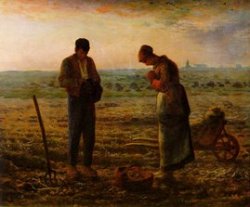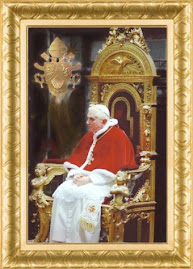A short fragment from the essay on Carmelite spirituality which gives as a very good summary of the subject. Good reading to those interested in spirituality of Carmel.
Carmelite spirituality .... needs a ... life sufficiently recollected to permit the soul to perceive the divine presence "in the sound of a gentle breeze" (3 Kgs. 19: 12). In this perpetual return to solitude and recollection, this nostalgic call to detachment: "I will allure her, and will lead her into the wilderness; and I will speak to her heart" (Os. 2: 14), the Carmelite finds the very soul of his vocation. So he takes as guides those who have advanced along the paths of divine union and have tasted the sweetness of heavenly things; and he prays with Eliseus to his father Elias to grant him a double part of his spirit (4 Kgs. 2: 9).
Can we describe this spirit?
In spite of the mystery of its beginnings, on this point no hesitation is possible. This spirit consists essentially in a longing for union with God. It will be objected that all spiritual men know this longing. This is true. Nevertheless at Carmel this aspiration has a quality of immediacy, an insistence on prompt realization that distinguishes the Order's religious attitude. Carmel makes contemplation its proper end and to attain this end it practices absolute detachment in relation to all demands, or at least to all temporal contingencies. Eminently theocentric, Carmel refers itself wholly to the living God: "As the Lord liveth the God of Israel, in whose sight I stand" (3 Kgs. 17: 1). From the earliest ages union with God has been its "raison d'etre" and its soul. No doubt it was "the anticipated dawn of the Savior's redemptive grace" that made this possible. No doubt, too, that it has benefited by the progress and development of revelation down the centuries. Nevertheless at Carmel from the beginning, union with God has been and continues to be central. Characterized by an awareness of the presence within man's heart of the very being of God, the spirit of Carmel also includes a sense of the sacred and a thirst for things divine. Progress in the experience of God only serves to deepen and develop this basic and truly essential element. Without it neither the wise nor the simple could enter into and intensify their relations with God. No matter how individual is this spirit and with what difficulty it is analyzed, this spirit is to be identified with the most authentic mysticism. At Carmel nothing imitative or esoteric is to be found and Carmelite tradition is singularly sober as to the content of spiritual experiences though their presence is frequently attested. Always objective, it merely affirms the possibility and the reality of direct contact with God and points out the necessity, if this is to be attained, of recourse to a particular kind of life - the eremitic life.
It assigns no date to its first manifestations but instead states forcefully that, granted certain conditions, it is possible for man truly to live the divine life. For this it suffices for him to realize in himself the climate of the original desert, and after withdrawing into this interior solitude, "to hold himself in the presence of the living God". Than the light of truth will come to purify, enlighten and enkindlen his soul. Foundations are thus laid for a personal experience of God and the intimate relations that a creature may have with Him. Going back through the ages Carmel will never hesitate to recognize itself in the first hermit whom the Bible describes for us and to model its life on that of men vowed to the contemplation of divine things in silence and solitude.
Credit:
Carmelite spirituality .... needs a ... life sufficiently recollected to permit the soul to perceive the divine presence "in the sound of a gentle breeze" (3 Kgs. 19: 12). In this perpetual return to solitude and recollection, this nostalgic call to detachment: "I will allure her, and will lead her into the wilderness; and I will speak to her heart" (Os. 2: 14), the Carmelite finds the very soul of his vocation. So he takes as guides those who have advanced along the paths of divine union and have tasted the sweetness of heavenly things; and he prays with Eliseus to his father Elias to grant him a double part of his spirit (4 Kgs. 2: 9).
Can we describe this spirit?
In spite of the mystery of its beginnings, on this point no hesitation is possible. This spirit consists essentially in a longing for union with God. It will be objected that all spiritual men know this longing. This is true. Nevertheless at Carmel this aspiration has a quality of immediacy, an insistence on prompt realization that distinguishes the Order's religious attitude. Carmel makes contemplation its proper end and to attain this end it practices absolute detachment in relation to all demands, or at least to all temporal contingencies. Eminently theocentric, Carmel refers itself wholly to the living God: "As the Lord liveth the God of Israel, in whose sight I stand" (3 Kgs. 17: 1). From the earliest ages union with God has been its "raison d'etre" and its soul. No doubt it was "the anticipated dawn of the Savior's redemptive grace" that made this possible. No doubt, too, that it has benefited by the progress and development of revelation down the centuries. Nevertheless at Carmel from the beginning, union with God has been and continues to be central. Characterized by an awareness of the presence within man's heart of the very being of God, the spirit of Carmel also includes a sense of the sacred and a thirst for things divine. Progress in the experience of God only serves to deepen and develop this basic and truly essential element. Without it neither the wise nor the simple could enter into and intensify their relations with God. No matter how individual is this spirit and with what difficulty it is analyzed, this spirit is to be identified with the most authentic mysticism. At Carmel nothing imitative or esoteric is to be found and Carmelite tradition is singularly sober as to the content of spiritual experiences though their presence is frequently attested. Always objective, it merely affirms the possibility and the reality of direct contact with God and points out the necessity, if this is to be attained, of recourse to a particular kind of life - the eremitic life.
It assigns no date to its first manifestations but instead states forcefully that, granted certain conditions, it is possible for man truly to live the divine life. For this it suffices for him to realize in himself the climate of the original desert, and after withdrawing into this interior solitude, "to hold himself in the presence of the living God". Than the light of truth will come to purify, enlighten and enkindlen his soul. Foundations are thus laid for a personal experience of God and the intimate relations that a creature may have with Him. Going back through the ages Carmel will never hesitate to recognize itself in the first hermit whom the Bible describes for us and to model its life on that of men vowed to the contemplation of divine things in silence and solitude.
Credit:
Fragments from the essay "Carmelite Spirituality" by Fr PM de la Croix OCD. Fresco by Hendrick van der Broeck (Capella Sistina).

